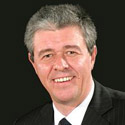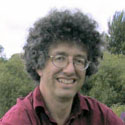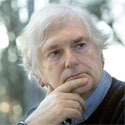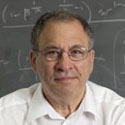Advisory Board and Editors Mathematical Biology

Daniel Fischer
I studied Statistics and Computer Sciences at the Technical University of Dortmund, Germany. During that time, my interest was particularly in mathematical statistics with a focus on high-dimensional extensions of the univariate median. After graduating, I moved to Tampere, Finland and completed my PhD in at the University of Tampere in Biostatistics with minor Bioinformatics.
While still being enrolled as PhD student at the University I started to work as a researcher in Bioinformatics at the MTT, Jokioinen, Finland. Since 2015 I am working at the Natural Resources Institute Finland (Luke) where I finalized my PhD.
My published articles in peer-reviewed journals cover a wide range of applications as well as statistical theory. My areas of expertise are target gene detection, biomarker identification and novel gene detection with a special focus on long non-coding RNAs. Further, I have experiences in the development of statistical methods for DE testing as well as deriving novel non-parametrical tests for (e)QTL analyses. I published and maintain currently six R-packages, i.e. for (e)QTL testing, cross-species ortholog detection and dimension reduction methods.

Karl J. Friston
Karl Friston is Professor of Imaging Neuroscience/Wellcome Principal Research Fellow, Faculty of Brain Science, University College London. In 2000 he was President of the international Organization of Human Brain Mapping. In 2003 he was awarded the Minerva Golden Brain Award and was elected a Fellow of the Royal Society in 2006. In 2008 he received a Medal, Collège de France and an Honorary Doctorate from the University of York in 2011. He became of Fellow of the Society of Biology in 2012.

Simon DW Frost
Reader in Pathogen Dynamics at the University of Cambridge; formerly Adjunct Associate Professor in the Dept. of Pathology, University of California San Diego (UCSD). Graduated with a BA in Natural Sciences (1st class), Trinity College, Cambridge (1992), DPhil in Mathematical Biology, Merton College, Oxford (1996). Postdoctoral positions at Princeton University, Oxford University, University of Edinburgh and UCSD. Awards include: NATO Postdoctoral Fellowship (1996), MRC Nonclinical Training Fellowship (1997-2000), a Royal Society Wolfson Research Merit Award (2008-2013), and Thomson-Reuters Highly Cited Researcher awards in 2014, 2015, and 2016.

Leonardo L Gollo
Leonardo is a Senior Research Fellow with training in Neuroscience and Physics. He works on Neuroscience, Computational Biology, Connectomics, and Complex Systems. His research focuses on computational and mathematical models of brain function.

Alan Hastings
Distinguished Professor of Environmental Science and Policy. Fellow of the American Academy of Arts and Sciences. Former President of the Society for Mathematical Biology and Editor of the Encyclopedia of Theoretical Ecology.

Stephen P Hubbell
Distinguished Professor of Ecology and Evolutionary Biology, UCLA, and Senior Staff Scientist, Smithsonian Tropical Research Institute; Founding Chair, National Council for Science and the Environment, Washington, D.C.; Co-founder, Center for Tropical Forest Science; Fellow, American Academy of Arts and Sciences: Fellow, American Association for the Advancement of Science; 2016 Laureate, International Prize in Biology, Japan Society for the Promotion of Science

Goo Jun
I am currently an assistant professor at the University of Texas Health Science Center at Houston. I work on statistical genetics, computational biology, bioinformatics, and sequence data analysis. With backgrounds in machine learning and data mining, my research is focused on development of computational and statistical methods for analysis of massive data to understand genetics and biology of complex traits. I have been working on the analysis of large-scale next-generation sequencing data, for which I developed statistical models and software pipelines for detecting sample contamination, variant discovery, machine-learning based variant filtering, and genotyping of structural variations. I also work on genetics of diabetes, obesity, and related traits and study of metabolomic and microbiome compositions related to genetics of common and complex traits.

Mikko Karttunen
Canada Research Chair (Tier 1) in Computational Materials and Biomaterials Research and Professor of Chemistry & Applied Mathematics at the University of Western Ontario. Leader of the Computational and Theoretical Biological Physics & Chemistry Group. Affiliate of the Perimeter Institute for Theoretical Physics at Waterloo.
Selected Awards: Ontario Early Reseachers Award, NSERC Discovery Accelerator, EU DEISA Extreme Computing, Distinguished Research Professor, Academy of Finland Fellowship

Julia Kzhyshkowska
1997: PhD Cancer Research Centre of the Russian Academy of Medical Sciences, Moscow.
1997-2001: Postdoc at the University of Regensburg
2001-2007: Junior group leader/PI and lecturer, University of Heidelberg.
2007- 2010:Senior group leader/PI and senior lecturer, University of Heidelberg
2010-2013: Professor, head of the Lab for Cellular and Molecular Biology of Innate Immunity;
2013-permanent: Professor, head of Department for Innate Immunity and Tolerance, University of Heidelberg.

Simon A. Levin
George M. Moffett Prof. of Biology at Princeton & the Director of the Center for BioComplexity. Past Chair of the Board of the Beijer Inst. of Ecological Economics, past President of the Ecological Society of America, past President of the Society for Mathematical Biology, past Chair of the Council of IIASA, and past Co-Chair of the Science Board of the Santa Fe Institute. Awards include the A.H. Heineken Prize for Environmental Sciences, the Kyoto Prize in Basic Sciences, and the Margalef Prize

Xing Li
Dr. Xing Li is an Assistant Professor and Associate Consultant in the Division of Biomedical Statistics and Informatics, Department of Health Science Research at Mayo Clinic - voted the best hospital by U.S. News & World Report. Dr. Li completed his PhD in Bioinformatics from The University of Michigan at Ann Arbor, Michigan, USA. Dr. Li also holds a Masters Degree in Biochemistry and Molecular Biology and Bachelors Degree in Microbiology. Dr. Li’s research interests focus on machine learning, bioinformatics, and statistical data mining in large scale data in biomedical research, such as next generation sequencing data (whole genome sequencing, RNA-seq, microarray data), in the file. He has published more than 20 peer-reviewed papers in reputable journals and book chapters in the fields of Bioinformatics and Biostatistics, cancer research, cardiovascular disease, embryonic stem cell (ESC) and induced pluripotent stem cell (iPSC) research, and human genomics, genetics and development, and Microbiology. Dr. Li’s publications have been highlighted as Journal Cover Stories, Journal Featured Articles, Highlights Section Papers, Must Read by Faculty 1000, and ESC & iPSC News, etc. Dr. Li has been developing data analysis tools, such as RCircle and PCA3d, etc. Dr. Li is also a member of American Association for Cancer Research (AACR), International Society for Computational Biology (ISCB), American Statistics Association (ASA) and American Heart Association (AHA).

Pablo A Marquet
Dr. Marquet is a Chilean Ecologist, known for his contributions in the fields of macroecology, theoretical ecology, conservation, and global change, and author of 190 publications including three books. Early in his carrier he started working on the quest for general principles underlying the complexity of ecological systems that contributed to the disciplines of metabolic ecology and ecological scaling. His work on the relationship between the size of organisms and their abundance proved to be of great generality as well as his work on the evolution of body size on landmasses; connecting body size to area, evolution, and fitness. He pioneered the development of Metapopulation models in dynamic landscapes uniting concepts from epidemiology and ecology and the emergence of power laws in ecological systems, being among the first to provide empirical evidence of Self-Organized Criticality in ecological systems using the extinction record of birds in Hawaii. In parallel, he carried important work on the conservation of vertebrate species and on the impact of climate change in the Americas and Europe. His current work focuses on the emergence of ecological diversity, the drivers and consequences of human cultural complexity and the integration of theories in ecology. He is member of the Chilean National Academy of Science, a former Guggenheim Fellow and member of the science board of several national and international organizations.

